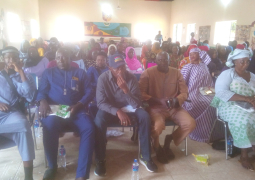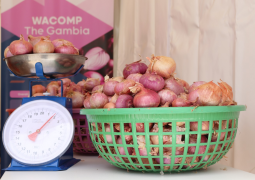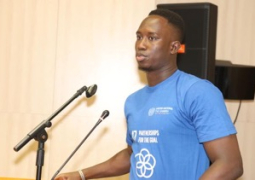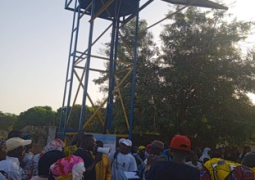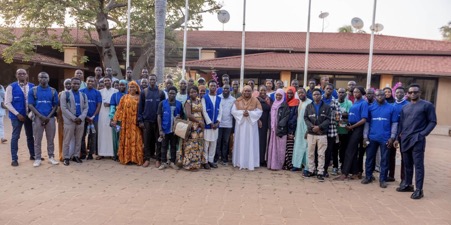
The confab comes after eleven-days nationwide tour to sensitise communities about the danger associated with the TiP and SoM.
The exercise attracted different stakeholders ranging from parliamentarians, government officials, CSOs, business tycoons among others.
Speaking at the event, Dr. Desta Tiruneh, World Health Organisation country rep, who also represented UN Resident Coordinator, described the intervention as ‘timely’ given the recent spike in the number of boats that departed the shores of The Gambia towards Europe this year.
“This has greatly alarmed not only Government, but the nation as a whole. UNODC under its PROMIS Project went into each of every region of the Gambia and met with communities and community leaders such as Village heads, chiefs, Governors, Counsellors, women's and youth groups.” he said.
During the nationwide tour, he added that UNODC had intensive consultations with community leaders and called for their support and continued collaboration to curb migrant smuggling and fight against human trafficking in the Gambia.
“It also sought their support to advocate for the domestication of the Migrant Smuggling Bill 2018 which will ensure that smugglers are penalised for this heinous crime. This interface dialogue today concludes the nationwide tour, although the fight continues. The Presence of the Mayor of KMC and the Mayoress of Banjul is an excellent indication of the good will of Government to fight against these two crimes and the excellent collaboration UNODC has with its Government counterpart.”
He observed that this collaborative discourse is an integral part of addressing issues that they collectively face and providing tangible solutions to ensure that human trafficking and migrant smuggling is eradicated in The Gambia.
For his part, Addoulie Njie, National Assembly Member for Banjul Central, highlighted the effects of some destructive hard substances and trafficking in person includes brain drain, high crime rate, diseases, increase in insanity, loss of human capital at the side of the state, increased poverty among others.
“These effects not only affect state economies, but can also destabilise families, and societies as a whole. If I have the power to suggest, I would advise my beloved brothers, sisters, uncles and aunties, who are mostly involved in these scenario to be cautious and not let the current financial crisis derail us in embarking on journeys that are uncertain.”
In his vote of thanks, Amadou Jallow, program Officer at GCSA, emphasised that discussions and insights shared should serve as a catalyst for further action and advocacy in their respective communities, workplaces, and beyond.
In the nationwide tour, over 32 communities were visited and sensitised on the devastating effects of TIP and SoM.


